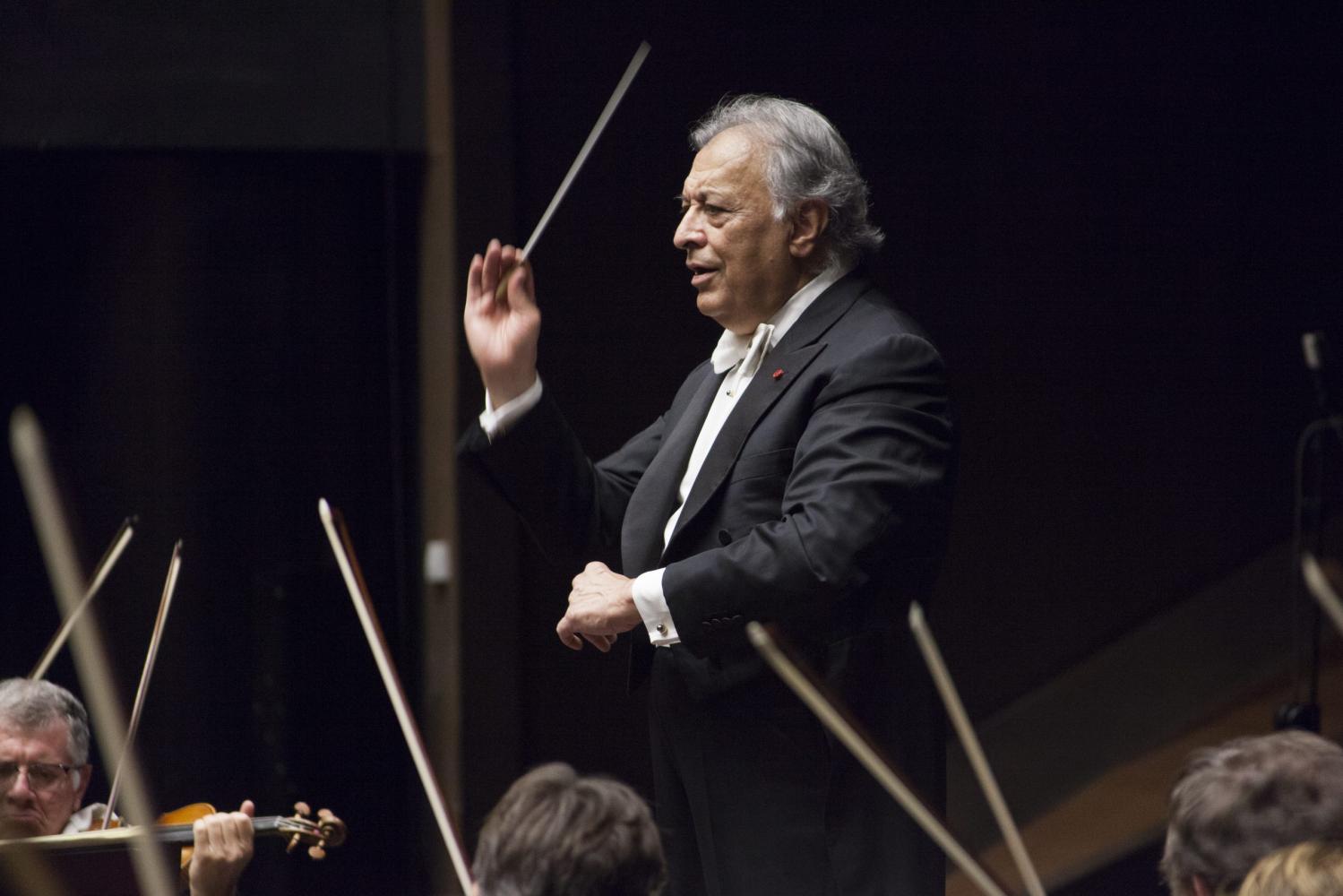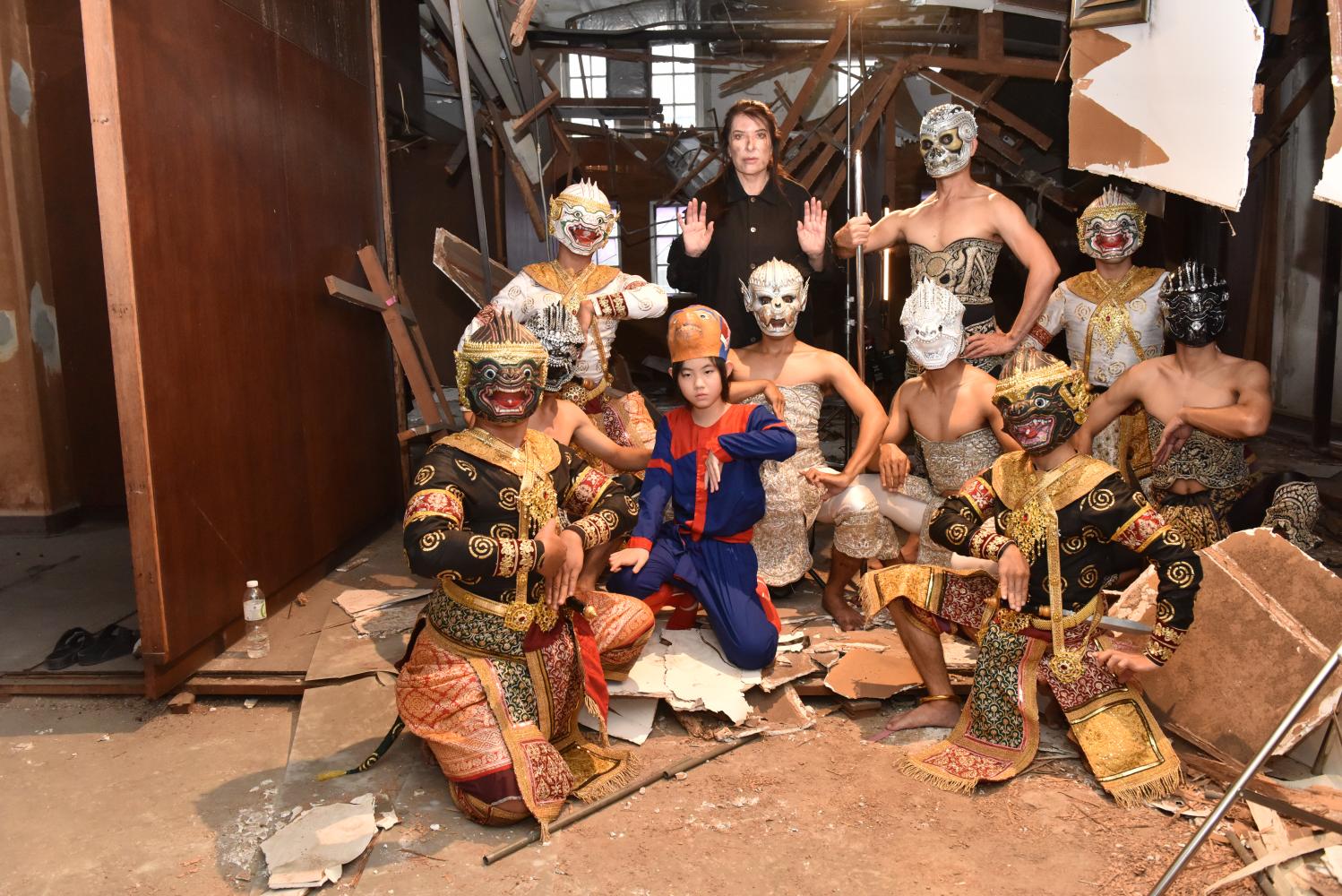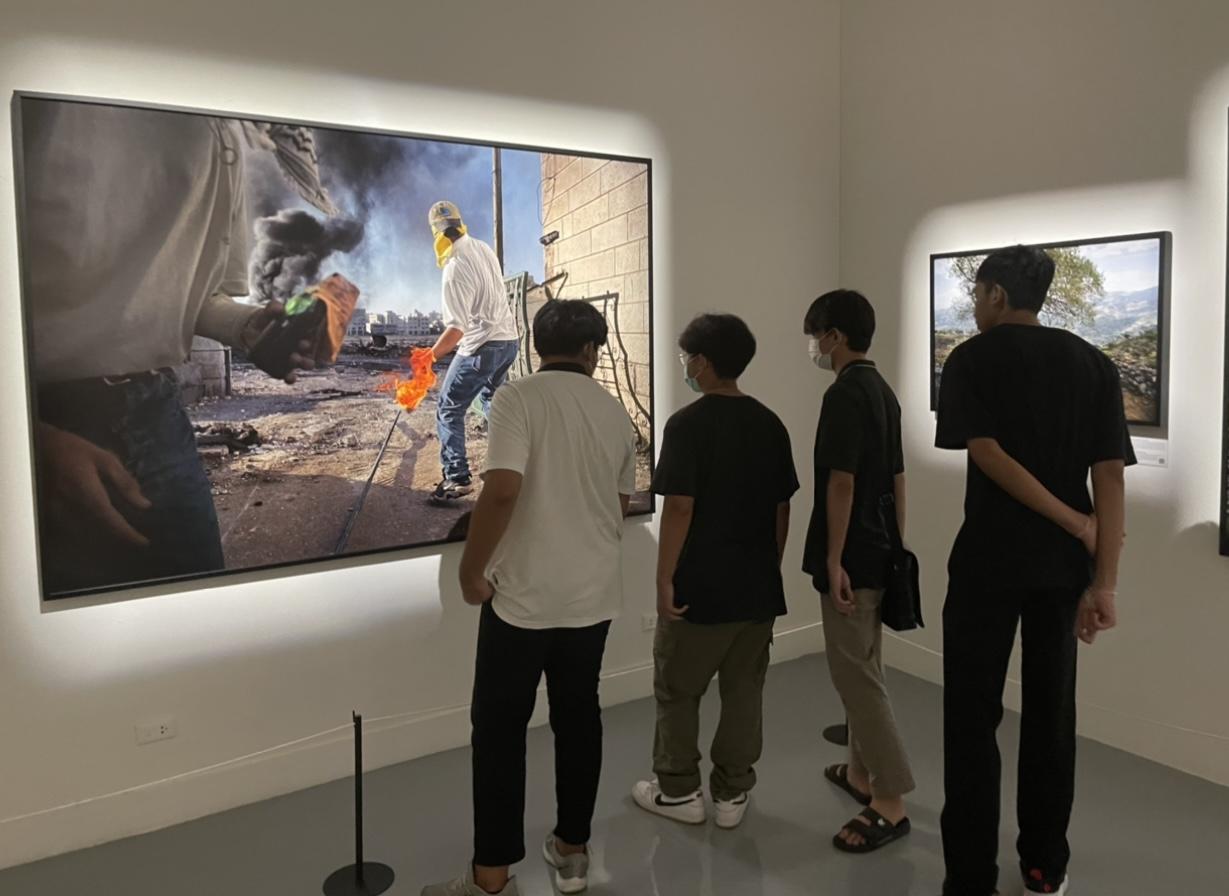Since the recent return of Thaksin Shinawatra after 15 years of self-exile to Bangkok and the parliamentary selection of Srettha Thavisin as Thailand's 30th prime minister on the same day, politics and culture have unfolded with drama and excitement.

Zubin Mehtha conducting at Thailand Cultural Centre. (Photo courtesy of the Ministry of Culture)
Under Srettha's new government, remarkable cultural events occurred in a short span of time -- a concert by the maestro Zubin Metha and the symphony Orchestra of Maggio Musicale Florentino at the Thailand Cultural Centre; the world premiere of The Spirits Of Maritime Crossing starring Marina Abramovic and Pichet Klunchun at St Moritz Art Film Festival; James Nachtway's retrospective photo exhibition "Memoria" at the Bangkok Art and Culture Centre; and Prae Pupityastaporn's mesmerising paintings represented by Nova Contemporary at Frieze Seoul International Art Fair.
Srettha's government experienced a baptism of fire (and faeces) before the royal audience ceremony to swear the oath of allegiance when a founding member of CARE, supported by the Pheu Thai Party, Duangrit Bunnag announced a faeces-throwing event as part of a publicity stunt. Duangrit, a loyal supporter of Thaksin and the red shirts, promised that if the Pheu Thai Party joined hands with the army-backed Palang Pracharath Party, he would allow people to throw faeces at him for 11 minutes. Duangrit was covered from head to toe as he allowed faeces to be poured on and pelted at him. It was all a prank as a man with a Gen Pravit Wongsuwan mask joined in the shit-throwing fiasco. The soft and dribbly stunt turned out to be dreary and uneventful.
Protesters at the event demanded an apology from Duangrit and the Pheu Thai Party for their betrayal in not keeping their promise to the Move Forward Party. Afterwards, CARE wrote that Duangrit's stunt was comparable to Marina Abramovic's performance, Rirkrit Tiravanij's pad Thai cooking and relational aesthetics. Sadly, an obnoxious attempt by CARE to claim Duangrit's dumb act as performance art badly backfired resulting in further tarnishing the image of CARE and its members.
With the cabinet hurriedly formed amid a public outcry of foul play, false promises and backstabbing by political parties, there has hardly been time to launch the highly pretentious soft power campaign lauded by the government.

Marina Abramovic and Pichet Klunchun at the world premiere of The Spirits Of Maritime Crossing at St Moritz Art Film Festival, Switzerland. (Photo courtesy of Bangkok Art Biennale)
Sadly, no attempt has been addressed on recurring issues of redundant government projects, distribution of budget and lack of integration among departments and ministries. We are reminded of the ostentatious plans of the Office of Knowledge and Management Development initiated by Thaksin's government to boost the creative economy through the Thailand Creative & Design Center (TCDC), TK Park and Museum Siam. Previously, funding remained among selected groups with limited networking among stakeholders in areas of art and design confined mostly in Bangkok, while branches of the TCDC and TK Park in provinces have not been successful. The Thailand Creative Content Agency (THACCA) was founded by the Pheu Thai Party to emulate the Korea Creative Content Agency as government support for the creative economy and soft power. Grandiose promotion of Thai soft power inspired by the Korean Wave aims for a populist campaign to increase GDP with "5 F Power", named by the Prayut government, focusing on food, fashion, film, festivals and fighting in addition to literature, tourism and sports.
THACCA's lack of new ideas and vision regarding the potential of Thai creativity and imagination is clearly evident. Instead of restructuring of the art and design ecosystem and allocating of budget to stimulate art venues, this government still relies on outdated populist campaigns and projects. Instead of flaunting ostentatious ideas such as One TCDC, One Province and One Family, One Soft Power to reduce poverty and stimulate the economy, THACCA should support art institutions, independent art centres and artist-run spaces. Bangkok Art and Culture Centre, Museum of Contemporary Art, Jim Thompson Art Center, MAIAM Contemporary Art Museum, MAIELIE Khonkaen, Pattani Art Space, De' Lapae Art Space Narathiwat, Nan Rim Art Gallery with their limited budget have contributed much more than government art museums and art centres. Instead of wasting an enormous budget to promote One TCDC and One Province to comply with the Pheu Thai Party's populist campaign, the government must seriously consider budget allocation for these art centres and non-profit art organisations.

James Nachtwey's 'Memoria' exhibition at the Bangkok Art and Culture Centre. (Photo courtesy of the Bangkok Art and Culture Centre)
This brings us to the Srettha government's art and culture policy as well as its interpretation of Thai soft power. Thai charm and hospitality with the ability of persuasion and seduction fit well with American political scientist Joseph Nye's concept of the soft power of persuasion over force in terms of foreign policy. However, allusions of soft power have gone beyond the cultivation of good relations overseas to get-rich-quick schemes that serve national populist movements. In order to emulate Korean success stories in creative and content industries, THACCA must tackle old-fashioned power structures with government bodies that are clogged at the wheels for creative thinking and artistic development. With the drive to increase GDP through soft power, the government must urgently change the mindset of ultraconservative civil servants and restructure incompatible work groups.
For example, the promotion of Thai films and other content urgently needs restructuring. With the Ministry of Culture, Ministry of Commerce and Ministry of Tourism and Sports taking different responsibilities of funding, promotion, censorship and filming locations, they work in different directions. These sectors along with the Creative Economy Agency, OCAC Art Fund and Thai Media Fund should be under a one-stop service to increase efficiency, and inclusivity and reduce redundant projects.
The National Museum housed in a former royal palace should be regarded as a major attraction for soft power promotion. With refurbishing and redesigning of interiors and exhibitions, the artefacts and treasures on display are extremely attractive and alluring. The National Museum needs promotion and networking with Museum Siam and private sectors to help promote activities such as night museum and gala events. Thai heritage is the essence of soft power and deserves attention as part of national strategy.

Duangrit Bunnag receiving a bucket of cow dung at Mirror Art. (Photo courtesy of The Reporter)
The Bangkok Art and Culture Centre, now 15 years in existence, has proven to be the most active and vibrant public art space. BACC deserves an increase in annual funding from the government to improve galleries, exhibition spaces and training of staff to be one of the leading art centres in the region. Measly funding from BMA to pay water and electricity bills is not enough. In contrast, the National Art Gallery at the Thailand Cultural Complex, Ratchada Road, is in disarray with no vision, planning, management and human resources. As a Thaksin brainchild when he became prime minister, the development of the Thailand Cultural Centre Complex was slated to be a cultural destination and Asean gateway. Sadly, ill-planning and mismanagement resulted in inactivity. Two years after completion, the National Art Gallery, which cost over 1 billion baht for construction and interior decoration, has not been able to open to the public. The building with its deteriorating façade houses over 500 artworks stacked away in storage. It stands like a monument of emptiness and embarrassment that awaits a new lease of life. Like the National Gallery at Ratchada, the Ratchadamnoen Contemporary Art Center under the Ministry of Culture has been mostly inactive with limited exhibitions and attendance. Both spaces have failed to put together displays of a comprehensive permanent exhibition that traces the history of modern and contemporary Thai art so urgently needed.
Recently, the Ministry of Culture confronted dark cloud storms when former culture minister Itthiphol Khunpluem faced an arrest warrant for failing to show up for arraignment on corruption charges over the controversial Waterfront Suites and Residences condominium development in Pattaya when he was Pattaya mayor. During his farewell to officials at the Ministry of Culture, Itthiphol abruptly left and fled to Phnom Penh. From a promoter of Thai soft power, Itthiphol suddenly turned into a runaway fugitive. Such shocking news was unbearable for many who served under him at the Ministry of Culture.
Happily, the new minister, Sermsak Pongpanit, was welcomed with wide smiles at the Ministry of Culture head office. Sermsak assured that he has no worries concerning his new position. He is confident in promoting One Family, One Soft Power and the introduction of the new Soft Power Center. We await eagerly this exciting populist launch. Hopefully, it does not include Duangrit's very soft but not-so-powerful act which was full of bullshit.
Prof Apinan Poshyananda is the chief executive and artistic director of the Bangkok Art Biennale and a member of the research panel at the National Gallery, Singapore. He is the author of How To Explain Art To A Bangkok Cock, Explained.

A protester against Duangrit Bunnag at Mirror Art. (Photo courtesy of Ratsadorn News)

